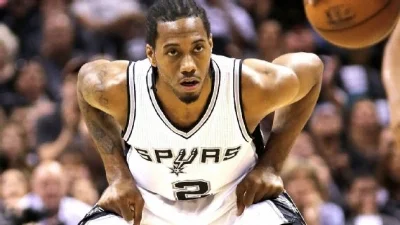Mike D’Antoni’s Rockets Coming Back To Earth
The Houston Rockets started the 2017-18 NBA season about as well as they could have hoped. Opening night saw them defeat the Golden State Warriors. Even though they lost their big acquisition, Chris Paul, to injury that night, the team jumped out to a 25-4 record. In the last two weeks they’ve lost 5 consecutive games while battling a myriad of injuries elsewhere. Yet, those losses don’t have to show lingering effects. I think the Rockets can grow from this slump with some help from head coach, Mike D’Antoni.
James Harden, with a look of confusion at a late foul call against him in a recent loss to the Boston Celtics.
Recently, the coach has gone with a short 8-man rotation. These Rockets aren’t in a dire situation and they appear to have great chemistry already. Why risk exhaustion or injury at this juncture? Their on-court leader, James Harden, is already playing too many minutes. Through 34 games, he played an average of 36.2 minutes. That includes 4 games when went over 40 minutes.
Considering that it’s still before the All-Star break, the rotation is too short. This is a common strategy for teams suffering injuries, but D’Antoni must take a page from his greatest rival, the San Antonio Spurs. In the early 2000’s, when Tim Duncan was still relatively young, Gregg Popovich opted to begin reducing his minutes. He even held him out of a playoff run with a knee injury for fear of its long-term impact on his career.
San Antonio Spurs Head Coach, Gregg Popovich, is known for restricting players minutes and workload.
This strategy slowly extended to the rest of the roster, and in recent years, few of their players even played an average of 30 minutes per game. The system heaps responsibility onto the bench players that make unexpected starts and gain confidence over the long 82-game schedule. I believe that’s a big reason why the Spurs always look fresh in the playoffs, and fly under the radar throughout the regular season, despite high-win totals.
James Harden needs that type of care. In a league that has become progressively offensive, a star cannot be trusted with this amount of responsibility. At some point, during these extended minutes, his priorities may shift to the box score as opposed to the possession at hand. James is known to do this. Not much different from his old teammate, Westbrook, he’s been spotted gazing up at the jumbotron and working hard to obtain that elusive ninth and tenth rebound needed for a triple double. If a game is wrapped up, pull your starters instead of letting them stat-chase. He did this last season, and looked fatigued in a second-round playoff collapse.
D’Antoni may argue that the extended minutes don’t matter, or are helping to build chemistry. Though the strain of extended play is clear. For a team that utilizes analytics to maximize three-point attempts and layups, they should probably use some of those same studies to maximize the health of their roster. This could be an opportunity to help the backups learn his innovative offense, while CP3 and others recover from injuries.
Mike D'Antoni (right) is working to reach the same kind of success he had with the Steve Nash (left) and the Phoenix Suns in the mid-2000's.
We can’t forget that it was Mike D’Antoni who inspired a lot of the changes in offense that we see today. In Phoenix, he saw the benefits of putting multiple shooters on the floor. He converted his versatile wings, Boris Diaw and Shawn Marion, into legitimate bigs. He made the athletic Amare Stoudemire his starting center. Then he pushed the pace and launched more threes than anyone before him. It was the foundation of the modern NBA offense, and he constructed it nearly 15 years ago.
The primary difference between then and now, is that those Suns squads had remarkable depth, with the ability to go 10 players deep. These Rockets need to adopt some of that strategy, not only to preserve their franchise star, but to have any hopes of toppling the Warriors in May as opposed to October.









